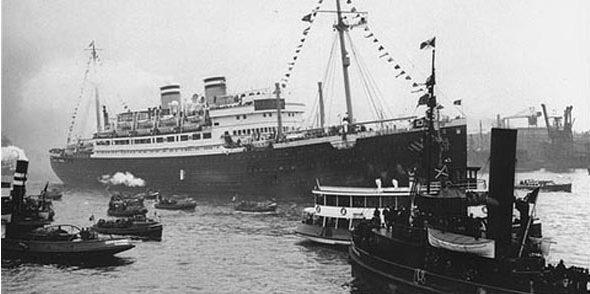When it comes to moving from “good intentions” to “mission-accomplished, a “voyage to nowhere” is not a journey to take.

Maybe you’ve been on one of those “voyage to nowhere” trips sold by cruise lines. Passengers embark on a ship, sail around on the open ocean without calling at any other ports along the way, and then disembark at the same port where they began.
While they’re at sea, the ship’s crew pampers passengers, who feast sumptuously and have a grand time…assuming –
* The weather isn’t stormy
* The seas aren’t heaving (along with the passengers)
* Viruses and bacteria aren’t raging through the onboard food and water supplies, and
* No pirates are attacking the ship (think “Captain Phillips”).
You may be able to tell that going on a cruise isn’t my preferred vacation. Some people – perhaps you – do enjoy it, though, so hey…don’t let me spoil it!
However, when it comes to moving from “good intentions” to “mission-accomplished” for the sake of Your Cause, a “voyage to nowhere” is not a journey to take.
Rather, it’s crucial to have a clear understanding of what our Cause exists to accomplish (think “purpose”) and also what the result or impact of accomplishing that purpose looks like (think “vision”).
In others words, why do we operate and, when we function successfully, how are people’s lives and conditions impacted for good?
Being able to answer those questions is foundational to charting a course to a destination that matters.
For followers of Christ, the mandate He gave us to “make disciples” (the Great Commission — see Matthew 28:18-20) does not change.
Nor does the Gospel (see 1 Corinthians 15:1-5).
Nor does the Way of salvation – it’s by grace alone through faith alone in Christ alone (see John 14:6).
But the particular approach we take to fulfilling our Lord’s assignment may vary, depending on our unique calling and also changing conditions.
For example, in the late 1980s, communicating by fax machines may have been leading-edge technology, but resolutely binding ourselves to accomplishing our purpose solely by using fax machines would today be, to say the least, less than optimal.
We’ll discuss more in coming posts about mission and strategy. But as an encouragement toward clear thinking about our purpose and vision, consider a historical “voyage to nowhere.”
The year was 1939. That May, according to the United States Holocaust Memorial Museum, the German ship St. Louis set sail from Hamburg carrying 937 passengers, most of them Jewish refugees.
Bound for Cuba, no one on board knew that the government there had invalidated all landing permits. When the ship arrived in Havana, only a few passengers were allowed to enter.
After sitting in port for six days, the St. Louis was forced to leave, and sailed north toward the Florida coast. Unable to dock there either, the ship then returned to Europe.
There, its Jewish passengers were distributed among several countries, including Belgium, the Netherlands, and France. We know the dark cloud of evil that engulfed those nations in subsequent months.
In the end, those fleeing for their lives on the St. Louis had sailed thousands of miles yet failed to reach a safe destination. Ultimately, they too fell victim to the Nazi “Final Solution.”
Hindsight makes those who have the luxury of it seem wiser than those who did not.
Having said that, it seems reasonable to suggest that the purpose of rescuing the Jews aboard the St. Louis, and the vision of seeing them settled free and safe from Nazi oppression, was always bigger than the original plan “to get them to Cuba.” It called for larger thinking and action by multiple leaders and governments — which, tragically, did not happen.
When it comes to our Cause and making progress toward “mission-accomplished,” let’s not make the mistake of fixating on one specific course of action, regardless of changing circumstances, at the expense of the greater good we’re aiming to accomplish.
Maintaining that perspective will indeed help us get There from Here, and spare us and others from less than desirable, even tragic outcomes.
Ahead of next time, consider this:
* Are your purpose and vision sufficiently focused but, at the same time, not unnecessarily restrictive?
* How does your group uniquely carry out your purpose, in order to bring your desired vision into being?
I’d love to hear from you…
Preston